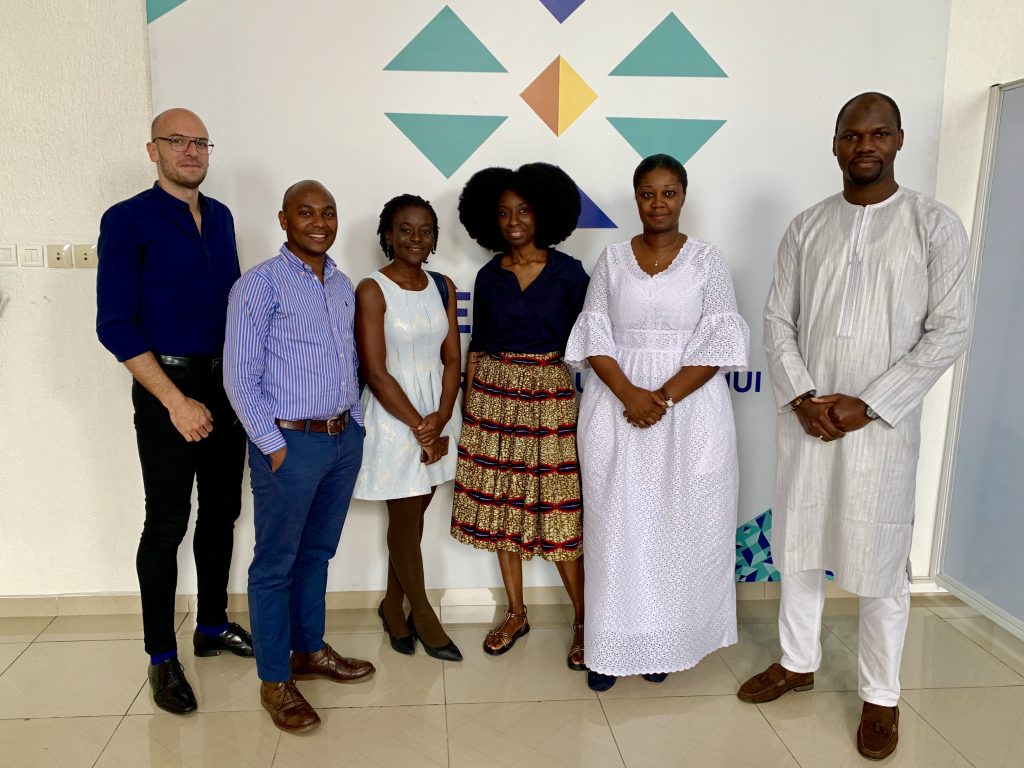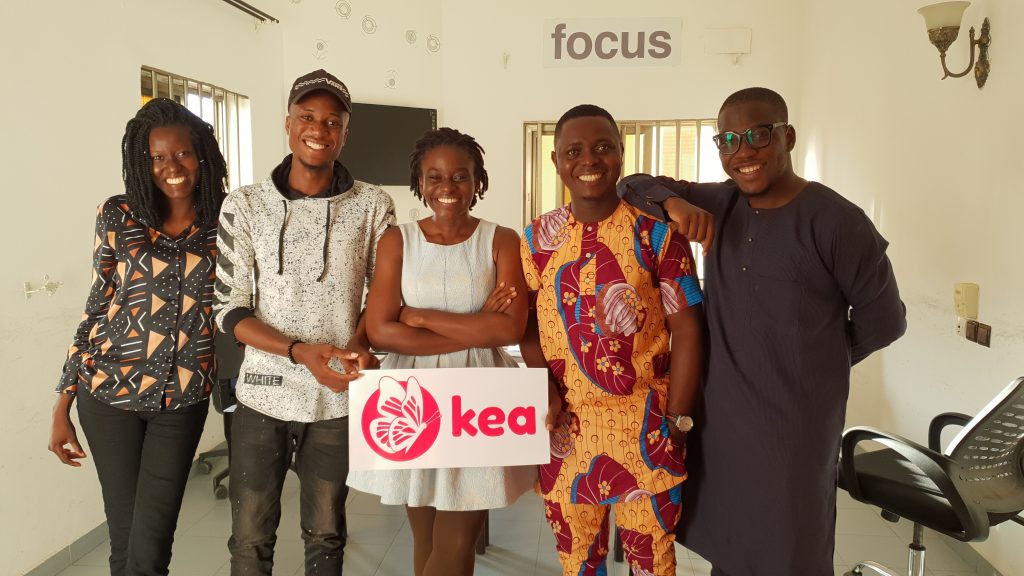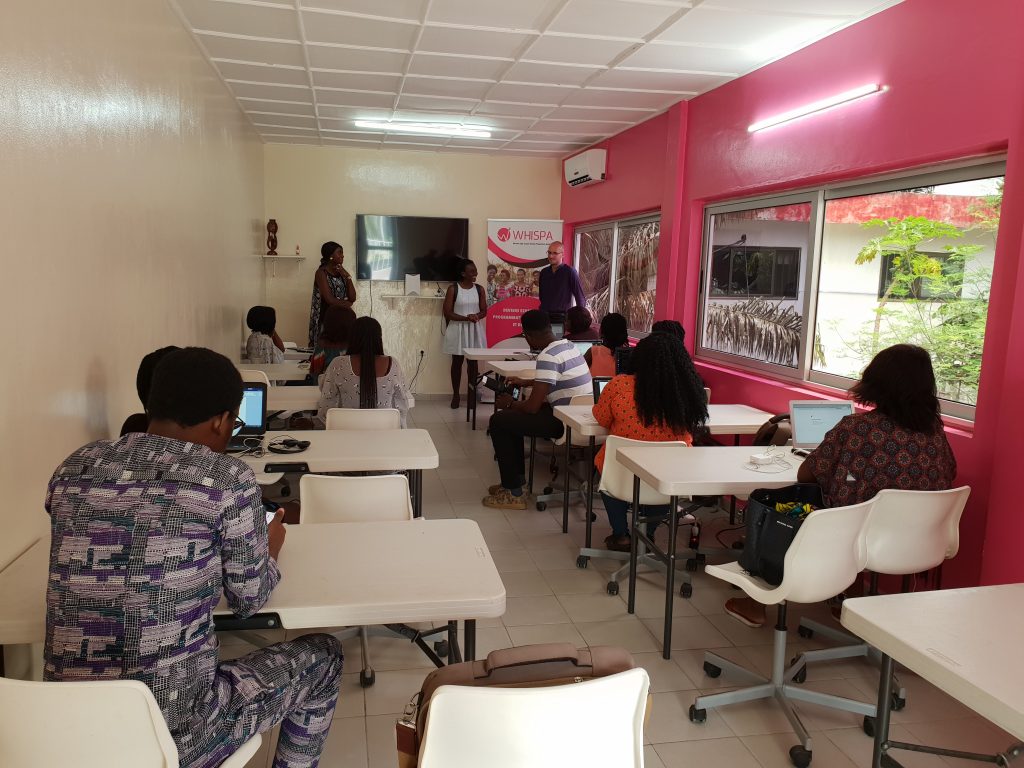The GSMA Ecosystem Accelerator team, represented by Peter Ndichu and Max Cuvellier, was in Cotonou, Benin in mid-June 2019, firstly for a market visit to our local portfolio start-up, Kea Medicals, secondly to meet with stakeholders in the local entrepreneurship ecosystem including but not limited to government, mobile operators, tech hubs and investors. In this blog post we would like to share some of our learnings on Benin’s tech ecosystem.
The wheels of Benin’s government are turning fast
The government of Benin has strongly embraced the role of technology in encouraging economic development. Through initiatives such as Revealing Benin and business-friendly policies, Benin has taken a multidimensional approach to improve economic and welfare outcomes for its more than 11 million citizens.
For example, Benin’s flagship Sèmè City project aims to create a community of entrepreneurs with strong appreciation for local opportunities and constraints around the project of creating a new city. Sèmè City plays the role of a living lab for entrepreneurs by leveraging government, investors, donors, start-ups and private sector resources while providing a test bed for innovations across multiple sectors.
Similarly, the Ministry for Digital Economy and Communication led by H.E. Ms. Aurelie Adam Soule Zoumarou, continues to support initiatives geared towards unlocking value for SMEs, especially technology-enabled start-ups. Last year’s Benin Digital Week (November 2018) featured multiple stakeholders including agritech start-ups pitching for Benin’s first E-Agri Challenge. Furthermore, friendly regulation has enabled start-ups such as Kea Medicals to build technology solutions that promote access to quality health care across Benin.
Digital start-ups drive access to quality products and services across multiple sectors
Early-stage companies continue to embrace technology to solve challenges in sectors such as health, logistics and agriculture. Thanks to the ubiquity of mobile technology, the mix of technology solutions often include mobile technologies ranging from SMS and USSD to more dynamic tools such as blockchain and apps.
Specifically, one of our portfolio start-ups, Kea Medicals, builds hospital management platforms that seamlessly manage patient records, therefore reducing service times at local hospitals. Thousands of patients and health practitioners as well as dozens of hospitals and pharmacies are now accessing Kea’s service via digital apps, as well as offline.
Meanwhile, in the logistics space, Ze’xpress provides courier services for individuals and SMEs. Riders on Ze’xpress generate additional income while freeing up precious time for customers and businesses. Customers typically use mobile money to settle payments. In rural areas, USSD is commonly used to place orders, compared to WhatsApp, which is more frequently used in urban areas.
In other sectors early-stage start-ups continue to challenge the status quo. Start-ups such as PreciAgri (Winner of E-Agri Challenge 2018) have built mobile apps to increase efficiency for farmers while Exportunity provides merchants and shoppers with a smart trading hub that is interactive (based on your location) and optimised for payment processing.
Women are the new face of the tech space
The Minister for Digital Economy and Communication, the Kea Medicals CEO and the Managing Director for Sèmè City are all women. Women globally are more likely to be under-represented in STEM-related career paths – research shows that women only make up 30 per cent of the labour force in the technology sector, and according to Pew Research Center, only five per cent of fortune 500 CEOs are women. As more women enroll in technical courses, launch tech business and lead ICT ministries, the tide will reverse favorably towards more equity. However, in order to tip the balance, deliberate steps must be taken to close existing gaps.
EtriLabs, one of Benin’s leading hubs, is already a step ahead. Last year the hub launched the Women High Impact Start-up Preparation Academy (WHISPA). This twelve-month program trains junior women who intend to launch a career with a strong technology focus in programming, digital marketing and design. Dozens of women have already benefited from the programme and initial results indicate that 90 per cent of programme participants take up tech-related roles post programme.
In conclusion, Benin is building an enabling environment for tech-enabled businesses to thrive. As start-ups continue to provide solutions to existing challenges, thanks to ubiquitous mobile technology, the economy will experience significant productivity and socio-economic gains. By including women in Benin’s entrepreneurial journey, gender dividends will increase leading to even stronger economic and social outcomes. In short, watch this space!
The Ecosystem Accelerator programme is supported by the UK Department for International Development (DFID), the Australian Government, the GSMA and its members.






